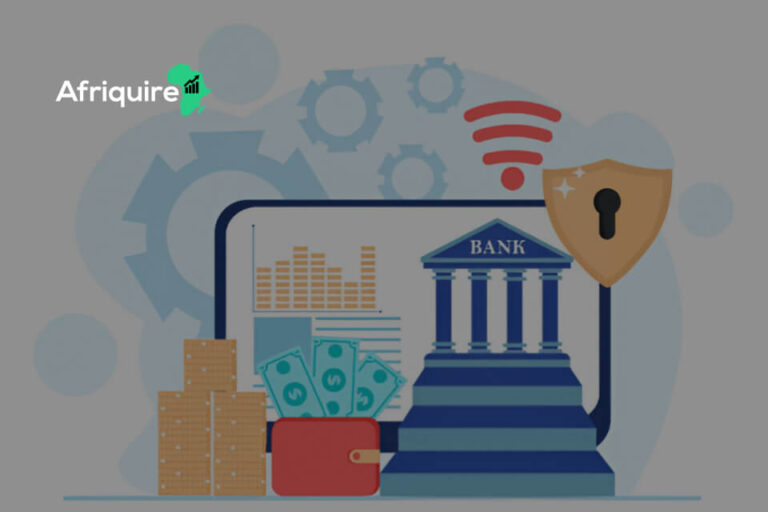Introduction
Africa’s entrepreneurial landscape is rapidly evolving, with women entrepreneurs at the forefront of this transformation. Women are innovatively shaping African startup ecosystems, from tech ventures to small businesses. However, the challenges facing women entrepreneurs in Africa remain a pressing issue. Despite these hurdles, they continue to fuel the role of technology in economic development by breaking barriers and contributing to growth. What does this mean for the future of African startups in the global market?
In a continent where the role of youth empowerment in Africa’s future is critical, women entrepreneurs are playing a vital part in building strong communities and economies. As they rise to the top, the importance of creating a solid team in African startups becomes more apparent. Yet, their journey is far from easy, filled with unique obstacles that demand attention and support. Let’s dive into these challenges and explore how we can foster more inclusive entrepreneurial ecosystems.
Introduction: The Landscape of Women Entrepreneurship in Africa
Across Africa, women entrepreneurs are steadily gaining recognition for their vital contributions to the continent’s economy. From small-scale businesses to large enterprises, these women defy the odds, push boundaries, and carve out spaces in previously male-dominated industries. However, their journey is not without significant challenges, many unique to their gender.
These obstacles range from societal expectations and cultural norms to limited financial resources and mentorship access. Understanding these hurdles is critical to empowering women entrepreneurs and fostering an inclusive business environment where they can thrive and contribute even more significantly to Africa’s economic growth.
Overview of the Growing Number of Women Entrepreneurs in Africa and their economic contributions.
The number of women entrepreneurs in Africa is steadily increasing, significantly driving economic growth. Women lead innovative businesses and create jobs across various sectors, from agriculture to technology. Their contributions have boosted local economies, helped reduce poverty, and promoted social development. Women entrepreneurs are breaking traditional barriers and entering industries once dominated by men, contributing to a more inclusive economy.
As more women embrace entrepreneurship, their influence continues to shape Africa’s economic landscape, proving that empowering women is essential for the continent’s future prosperity and sustainable development.
The Significance of Supporting Women in Business for Economic Growth and Social Development
Supporting women in business is more than just a gender issue—it’s an economic necessity. Studies show that women-led businesses often prioritize community-based initiatives, focusing on education, healthcare, and poverty reduction. These efforts create broad social benefits, leading to better living standards and more stable communities.
Women entrepreneurs also tend to reinvest a significant portion of their income into their families and communities, further strengthening local economies. Therefore, investing in women entrepreneurs not only promotes gender equality but also fosters more robust, more resilient economies, making it essential for sustainable economic growth and development in Africa.
An Overview of the Unique Challenges Faced by Women Entrepreneurs Compared to Their Male Counterparts
While both male and female entrepreneurs encounter hurdles, women face additional challenges linked to societal norms, gender biases, and unequal access to resources. Societal expectations often place limitations on women, expecting them to prioritize family responsibilities over business ventures. Gender biases in financial institutions make it difficult for women to access loans, investments, or business grants, further stifling their entrepreneurial potential.
In addition, women may face discriminatory practices, limiting their opportunities in male-dominated industries. These barriers affect individual business growth and hinder the overall economic contribution that women entrepreneurs could bring to their communities and nations.

Cultural and Societal Barriers
Traditional Gender Roles
In many African communities, women are still expected to prioritize domestic responsibilities, such as managing the household and caring for children, over business endeavors. This cultural expectation often discourages women from pursuing entrepreneurship, as they face societal pressure to conform to traditional roles. As a result, many women are forced to choose between fulfilling these expectations and chasing their career aspirations, limiting their opportunities to engage in business ventures and economic growth fully.
Balancing Family Responsibilities
Balancing family responsibilities with business demands can be a herculean task for women entrepreneurs. Mothers, in particular, face immense pressure as they juggle the dual roles of running a business and managing household duties, including childcare. This constant balancing act often leads to physical and emotional burnout, making it difficult for them to focus entirely on their entrepreneurial ventures. The added stress of these responsibilities can hinder their business growth and overall well-being.
Lack of Societal Support
Social stigmas and biases frequently undermine the efforts of women who venture into business. In many communities, female entrepreneurs are often viewed as “unfit” for leadership or significant decision-making positions. This perception limits their opportunities and restricts their chances of gaining societal support, respect, or credibility in business. The lack of backing from their communities can further discourage women from pursuing entrepreneurship, leaving their potential underutilized.
Discrimination and Stereotypes
Women often encounter discrimination and stereotypes that cast doubt on their ability to run successful businesses. These biases, rooted in outdated gender norms, undermine their credibility and make it more challenging for them to gain respect in male-dominated industries.
As a result, women’s confidence in their entrepreneurial abilities may be diminished, discouraging them from fully participating in the business world. These negative perceptions create additional barriers, making it harder for women to achieve their full entrepreneurial potential.
Influence of Religion and Customs
Religious beliefs and cultural customs can significantly limit women’s participation in certain business activities. In some regions, traditional doctrines restrict women from engaging in industries like finance, real estate, or leadership roles, deeming them inappropriate or unsuitable for women.
These limitations, rooted in religious or cultural practices, not only hinder women’s entrepreneurial growth but also reinforce gender inequality in the business world. As a result, many women cannot fully explore or succeed in these sectors.

Access to Capital and Funding
Gender Bias in Lending
A significant challenge for women entrepreneurs is accessing capital due to gender bias in lending. Many banks and financial institutions exhibit discriminatory practices, favoring male business owners when approving loans or grants. This bias results in women facing higher barriers to securing the necessary funding for their ventures. Consequently, limited access to capital stifles the growth potential of women-led businesses and hinders their ability to expand and compete effectively in the market.
Limited Collateral and Credit History
A common requirement for securing loans is collateral, such as property or assets. Unfortunately, in many African societies, property rights are skewed in favor of men, leaving women with limited access to property or assets that can be used as collateral. This disparity creates a significant barrier for women entrepreneurs, as they often lack the necessary assets to qualify for loans, restricting their ability to secure funding and grow their businesses.
Venture Capital and Investment Gaps
Female entrepreneurs are significantly underrepresented in venture capital funding, which poses a significant obstacle to scaling their businesses. The lack of investment opportunities limits their growth potential and ability to expand. Additionally, pitching to investors can be incredibly challenging for women, who often face gender bias and skepticism regarding their capabilities.
This discrimination hinders their chances of securing funding and discourages many women from pursuing more significant business opportunities.
Microfinance Limitations
While microfinance has been instrumental in helping many women start small businesses, it often falls short of providing the growth capital needed for expansion. These financial products typically cater to initial startup needs rather than supporting scaling efforts. As a result, many women entrepreneurs find themselves stuck at a subsistence level, unable to access more prominent funding sources that could drive significant growth and elevate their businesses to the next level.
Financial Literacy
Many women entrepreneurs face challenges due to inadequate financial literacy, which hampers their ability to manage funds effectively and seek investment opportunities. This lack of knowledge can lead to poor financial decisions, inefficient resource management, and missed growth opportunities. Bridging this gap is crucial for their success, as improved financial literacy can empower women to navigate financial systems better, attract investors, and manage their businesses more effectively.
Legal and Regulatory Challenges
Restrictive Business Laws
In certain African countries, restrictive business laws significantly impact women’s entrepreneurial activities. Legal frameworks around property ownership and inheritance rights often disadvantage women, limiting their ability to secure assets needed for business expansion. These laws can hinder women from fully participating in and benefiting from entrepreneurial opportunities.
As a result, many women face additional barriers to growing their businesses and achieving economic independence, perpetuating gender disparities in the business sector.
Bureaucratic Barriers
Bureaucratic barriers, such as complex business registration processes, tax compliance, and regulatory requirements, often pose significant challenges for women entrepreneurs. These procedures can be time-consuming and difficult to navigate, disproportionately affecting women who may lack access to the same legal and administrative resources as their male counterparts.
This disparity can delay or obstruct the establishment and growth of women-led businesses, exacerbating existing gender inequalities in the entrepreneurial landscape.
Lack of Legal Protection
In many African countries, legal systems fall short of providing adequate protection for women entrepreneurs against discrimination or unfair treatment in business dealings. This lack of legal safeguards can create an environment where women face exploitation or bias without recourse. The absence of robust legal protection often deters women from pursuing larger ventures or expanding their businesses, as they may fear facing unfair practices without proper support or recourse.
Limited Access to Legal Resources
Women frequently encounter limited access to affordable legal advice, which hinders their understanding of business laws and regulations. They struggle to navigate complex legal requirements without proper legal guidance, protect their business interests, and ensure compliance. This lack of access further hampers their ability to grow their enterprises and compete effectively in the marketplace, leaving them disadvantaged compared to those with better legal resources and support.
Limited Access to Networks and Mentorship
Networking Challenges
Business networks are frequently male-dominated, creating significant barriers for women to gain entry. This exclusion limits their opportunities for crucial partnerships, knowledge-sharing, and market access. Without access to these established networks, women entrepreneurs may miss out on valuable resources, mentorship, and connections essential for business growth. The lack of inclusion in these networks can further hinder their ability to expand their ventures and compete effectively in the market.
Lack of Mentorship Opportunities
Women entrepreneurs often struggle to find mentors who can provide guidance and support. Effective mentorship is crucial for navigating the complexities of business, offering valuable insights, and overcoming challenges. However, gender bias can limit women’s access to these opportunities, leaving them without experienced advisors to help them grow their ventures. This lack of mentorship further exacerbates women’s difficulties establishing and expanding their businesses.
Gender Bias in Business Associations
Business associations and trade groups, which provide valuable resources and networking opportunities, are often skewed toward male entrepreneurs, leading to the underrepresentation of women. This lack of inclusion limits women’s access to essential tools, industry insights, and crucial connections necessary for business growth. As a result, women entrepreneurs may find it more challenging to leverage these resources effectively, hindering their ability to expand and succeed in a competitive market.
Challenges in Building Partnerships
Women entrepreneurs frequently encounter difficulties building partnerships due to a lack of trust or respect from potential male partners. This challenge is rooted in gender biases and stereotypes, which can undermine women’s credibility and potential in collaborative ventures. As a result, women often face isolation in the business world, missing out on valuable opportunities for growth, collaboration, and market expansion, further impeding their entrepreneurial success.
Isolation in Business
Isolation in business can have a profound psychological impact on women entrepreneurs, eroding their confidence and motivation. Being cut off from supportive networks and peers who understand their challenges can lead to feelings of discouragement and loneliness. This lack of community can diminish their drive to pursue business goals and hinder their ability to seek advice or encouragement, ultimately impacting their entrepreneurial success and overall well-being.

Case Study
Maryam’s Journey – Overcoming Barriers as a Women Entrepreneur in Nigeria
Maryam Ibrahim, a 34-year-old entrepreneur from Kaduna, Nigeria, provides a compelling example of the challenges faced by women in African entrepreneurship. Maryam launched her agribusiness venture, “GreenHarvest,” to empower local farmers and improve food security. Despite her innovative approach and dedication, Maryam encountered significant hurdles.
Cultural expectations in her community often placed domestic responsibilities on her, creating a constant struggle to balance family duties with the demands of running her business. The lack of societal support exacerbated this pressure, as female entrepreneurs in her area were frequently underestimated and marginalized.
Securing capital was another major challenge for Maryam. Gender bias in lending practices and the absence of property in her name, which could serve as collateral, made it extremely difficult to access loans. Venture capital was also out of reach, as investors often favored male entrepreneurs, doubting her potential despite a solid business plan.
Maryam faced additional obstacles in building a robust network. The male-dominated business associations and networking events made it hard for her to form valuable connections and find mentors. This isolation further impacted her confidence and slowed her business growth.
Despite these challenges, Maryam’s resilience and adaptability allowed her to overcome many obstacles. With the support of local NGOs and microfinance institutions focused on women, she gradually expanded her business, proving that women entrepreneurs can surmount significant barriers and contribute meaningfully to economic development with the proper support.
P.S. Kindly note that the case study here is fictional. As such, it’s not real.
Lessons Learned
Here are five lessons to be learned from Maryam’s case study:
1. Importance of Support Networks: Building strong support networks and mentorship relationships is crucial for overcoming challenges and gaining access to resources. Maryam’s success underscores the value of having advisors and peers who provide guidance, encouragement, and business connections.
2. Addressing Gender Bias in Funding: Gender bias in funding and lending practices poses significant barriers to women entrepreneurs. It is essential to advocate for and seek out financial institutions and investors that support and recognize the potential of women-led ventures.
3. Navigating Cultural and Societal Expectations: Overcoming traditional gender roles and societal expectations requires resilience and strategic planning. Maryam’s ability to balance family responsibilities while pursuing her business goals highlights the need for support systems that accommodate women’s dual roles.
4. Legal and Regulatory Awareness: Understanding and navigating legal and regulatory requirements is vital for business success. Maryam’s experience illustrates the importance of seeking legal advice and addressing bureaucratic hurdles that may impact business growth.
5. Leveraging Technology and Innovation: Technology and innovative solutions can help overcome traditional barriers and expand business opportunities. Maryam’s successful use of digital platforms to reach new markets and manage her business demonstrates the power of technology in driving entrepreneurial success.
Frequently Asked Questions (FAQs)
1. What are the main challenges facing women entrepreneurs in Africa?
Women entrepreneurs face cultural barriers, lack of capital, discriminatory lending practices, and limited access to networks and mentorship.
2. Why is access to capital more difficult for women in Africa?
Due to gender biases, women often lack collateral like property, which limits their ability to secure loans and access venture capital.
3. How do traditional gender roles affect women entrepreneurs?
Societal expectations often place domestic responsibilities on women, limiting their time and energy to focus on their businesses.
4. What can be done to support women entrepreneurs in Africa?
Providing financial support, access to mentorship, inclusive networks, and addressing discriminatory practices can empower women entrepreneurs.
5. Are there legal frameworks that hinder women entrepreneurs in Africa?
Yes, restrictive business laws, bureaucratic hurdles, and insufficient legal protections disproportionately affect women entrepreneurs.
Conclusion
In conclusion, while women entrepreneurs in Africa make remarkable strides and contribute significantly to economic growth, they continue to face many challenges that hinder their full potential. Societal norms, limited access to capital, and inadequate support networks create substantial barriers. Addressing these issues requires a concerted effort from governments, financial institutions, and communities to foster an inclusive entrepreneurial environment.
By tackling gender biases, improving access to resources, and enhancing legal protections, we can empower women entrepreneurs to overcome these obstacles. Their success drives economic development and strengthens social structures across the continent. Supporting women in business is essential for Africa’s sustained growth and prosperity, and it is imperative that we continue to work towards creating equitable opportunities that enable all entrepreneurs to thrive.



